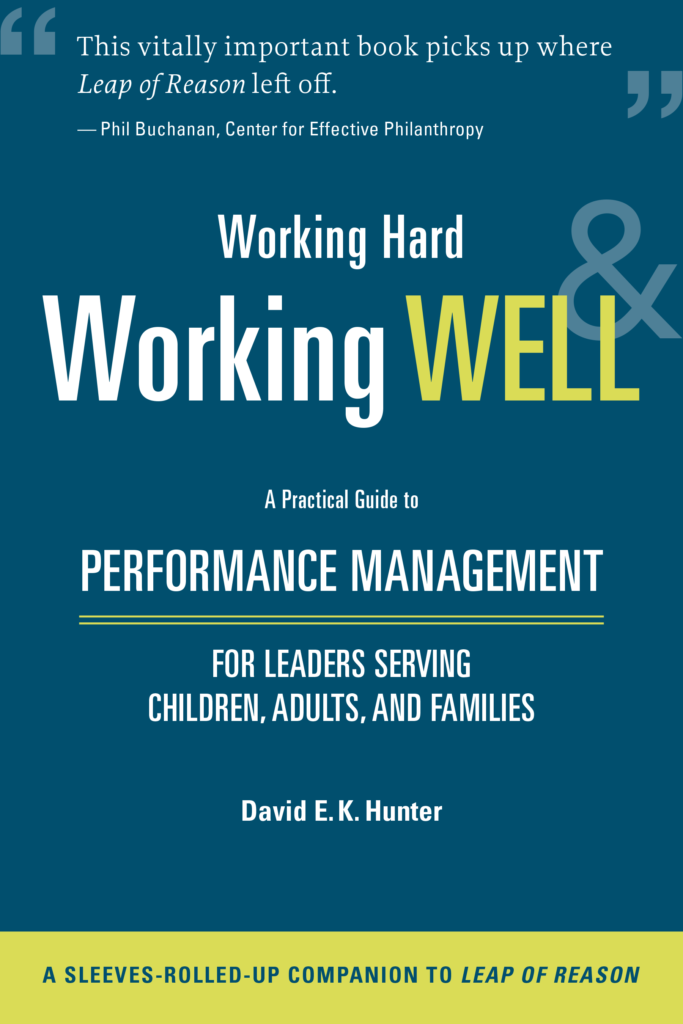
Working Hard-and Working Well
 To read this book is to hope that all human services organizations, and those that fund them, would embrace its recommendations—and to wonder how many millions of people’s lives would be improved, even saved, if they did.
To read this book is to hope that all human services organizations, and those that fund them, would embrace its recommendations—and to wonder how many millions of people’s lives would be improved, even saved, if they did.  --Phil Buchanan
--Phil Buchanan
In Working Hard—and Working Well, Dr. David E.K. Hunter shares the secret formula behind the intensive, tough-love workshops that have sparked transformation for many of the country’s top nonprofit organizations. The book is highly relevant for:
- Nonprofit leaders who know that guesswork is not enough when lives are on the line
- Board members and advisors who are brave enough to ensure that their organizations do what they say they do
- Consultants who want to help nonprofits develop performance cultures and systems
- Funders who demand performance from their grantees–and are willing to invest in it!


 “Managing to outcomes is not about simply counting things or gathering information. And it is not about satisfying funders. It is an internal effort aimed at figuring out what works and what doesn’t, so that the organization can provide the best possible services to its clients”
“Managing to outcomes is not about simply counting things or gathering information. And it is not about satisfying funders. It is an internal effort aimed at figuring out what works and what doesn’t, so that the organization can provide the best possible services to its clients” “You have to have undying passion for the population you’re serving. We can spend time patting ourselves on the back for the 85 percent of the kids who are doing really well in our program. But we need to be as concerned about the 15 percent who aren’t succeeding and learn how we can improve for them.”
“You have to have undying passion for the population you’re serving. We can spend time patting ourselves on the back for the 85 percent of the kids who are doing really well in our program. But we need to be as concerned about the 15 percent who aren’t succeeding and learn how we can improve for them.” “Through a process of self-reflection, our board members asked themselves fundamental questions: How can we improve? How can we make a greater impact?”
“Through a process of self-reflection, our board members asked themselves fundamental questions: How can we improve? How can we make a greater impact?” “Every day, you have to say, ’How can we do this more efficiently and more effectively?’ It’s in our DNA.”
“Every day, you have to say, ’How can we do this more efficiently and more effectively?’ It’s in our DNA.” “Any school in the country can do this. And it breaks my heart that we’re not [all] doing this!”
“Any school in the country can do this. And it breaks my heart that we’re not [all] doing this!” “Stories substituting for facts is like fingernails on a chalkboard for me!”
“Stories substituting for facts is like fingernails on a chalkboard for me!” “You’re taking someone else’s money to get into somebody else’s life to try to make a difference. You better be showing you can make a difference!”
“You’re taking someone else’s money to get into somebody else’s life to try to make a difference. You better be showing you can make a difference!”